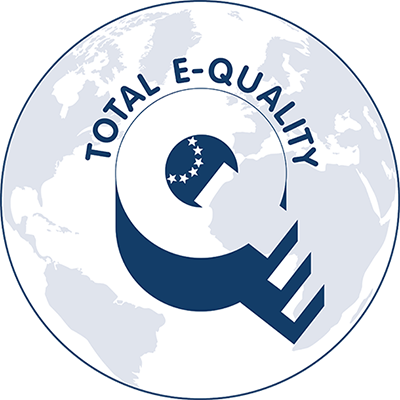Document servers, online archives and other repositories: which is the most suitable repository for your publication?
What are repositories?
Repositories are essentially digital databases or online archives designed to preserve and provide access to a wide range of scholarly materials. These can include journal articles, book chapters, research posters, monographs and research data. Repositories are typically categorised into two types: institutional and subject-specific. Institutional repositories are located at a specific institution and cover a broad range of subjects, while subject repositories focus on a specific discipline and archive publications from authors working at various institutions.
Both types of repository make publications freely accessible on a permanent basis, thereby increasing their visibility. Many repositories assign digital object identifiers (DOIs) to deposited materials and describe them with detailed metadata. Publications can also be made available under an open content license, provided the author holds the necessary rights.
Repositories are also widely used for green open access, allowing authors to self-archive a version of their work and make it freely available online, often after an embargo period. They are also suitable for gold open access, enabling the final version of a scholarly work – such as a thesis or doctoral dissertation – to be made freely and permanently accessible immediately upon publication. Repositories often feature interfaces for exporting metadata, such as to an author’s ORCID profile or to reference management software. These interfaces are also used to import information into the repository; for example, the DeepGreen data hub uses interfaces to distribute scholarly articles from publishers to open access repositories.
Repositories are also integrated in search engines, subject portals and library catalogues, and they can be accessed by services such as Unpaywall to track down freely available versions of publications. An OpenAIRE interface allows repositories to share data between different services on a European level.
There are a number of search engines that enable users to search for open access publications across multiple repositories and electronic journals, including the following two services:
- OAIster: Partial database run by WorldCat, which links to open access documents at libraries worldwide and provides access to the full texts.
- BASE: The "Bielefeld Academic Search Engine", which is run by Bielefeld University Library, gathers the data from repositories and provides a searchable database of all the archived documents.
How do I find a suitable repository?
The choice of repository will depend on your personal preferences and the subject of your work. In some disciplines, the archiving of publications in a specific repository has become a quasi standard, while in other disciplines this is less clear-cut. Sometimes, research funders may require researchers to deposit the output of a funded project in a specific, designated repository.
The first step is to decide whether to use an institutional or subject repository. However, this decision doesn’t have to be exclusive. In most cases, publications can be deposited in multiple repositories, provided you hold the necessary rights to do so.
Today, many universities and higher education institutions have their own institutional repositories where documents can be archived. These repositories are often managed by the institution’s library and frequently serve as archives for university papers, including theses and dissertations.
The Fraunhofer-Gesellschaft and the Max Planck Society are two research organisations that operate their own repositories: Fraunhofer Publica and MPG.PuRE. Members of institutes belonging to these organisations are required to archive their publications in the corresponding repository. The majority of the institutes that belong to the Helmholtz Association also have their own repository (see overview).
The repository ZENODO is a higher-level repository which is not tied to either a specific institution or a specific subject area. It allows users to deposit not only academic publications, but also other formats including research data. The repository is managed and developed by CERN in Geneva. It was set up using EU funds and forms part of a Europe-wide open access infrastructure.
A number of search platforms now enable users to search for repositories:
- The platform OpenDOAR is an authoritative directory of open access repositories. The overview is based on self-reporting by repository operators so is not necessarily complete. The entries are checked as part of the site's quality control process.
- The website of the German Initiative for Network Information (DINI) includes a list of German repositories (in German). This overview also contains information on which of the repositories have received a 'DINI Certificate'. In order to receive this certificate, repositories must fulfil certain technical and legal criteria which conform to national and international standards and the technical state-of-the-art. The certificate provides a form of quality assurance and ensures interoperability.
- Preprint servers provide access to scholarly articles before they undergo peer review. A comprehensive list of such servers is available on the Preprint Server Directory webpage. The directory also includes detailed information on the disciplinary scope of each server and outlines the basic screening processes carried out to ensure only scientifically sound content is hosted.
Repositories with a focus on life sciences
ZB MED runs a Repository for Life Sciences which offers authors the chance to self-archive their work in a reliable location that offers permanent availability. The repository also accepts unique research datasets and academic theses for publication.
PubMed Central
PubMed Central (PMC) is an electronic archive of journal literature run by the U.S. National Institutes of Health's National Library of Medicine (NIH/NLM). The National Library of Medicine is responsible for selecting and acquiring biomedical literature and resources and for archiving publications. PubMed Central provides access to biomedical and life sciences literature.
All authors funded by the National Institutes of Health (NIH) are required to deposit the author manuscript version of their article in PubMed Central as soon as their publication is accepted and to make their publication openly accessible within a period of 12 months.
The NLM also has an agreement with various publishers who deposit original publications from their journals directly in PMC as a service to authors while still respecting the stipulations imposed by funders. Some of the publishers have chosen PMC's "full participation" option and have provided PubMed Central with access to their complete contents.
The publishers benefit from this cooperation. The NLM takes on the responsibility of archiving journal issues in order to ensure permanent access to life sciences and biomedical knowledge. PMC also operates two international repositories: Europe PMC and PMC Canada. These two regional databases include all the content available in the U.S. version, with just a few exceptions. Both the international repositories also allow further articles to be deposited in accordance with the requirements of the funders located in each region.
List of publishers cooperating with PubMedCentral.
Advantages of repositories
Repositories offer several key benefits, particularly their detailed metadata descriptions and integration with subject portals and search engines. This gives them a clear edge in terms of visibility and distribution compared to other publication options, such as personal or institutional websites or academic platforms like ResearchGate and GitHub.
Unlike other platforms, repositories typically operate under non-exclusive licensing agreements, allowing authors to retain full reuse rights to their work even after gold open access publication. For green open access (self-archiving), repositories often assist authors with rights-compliance checks to ensure legal clarity.
Additionally, repositories are connected to digital preservation systems, guaranteeing the long-term accessibility of deposited materials.
See also
Electronic self-archiving: what are the key issues to consider when self-archiving publications in open access repositories (including document servers and online archives) or on websites?
Electronic publishing: what are the key issues to consider when publishing articles in open access journals?
What are the differences between preprint and postprint versions?
Funding: what requirements do funders impose in regard to open access?
DOI, ORCID and ROR: What makes persistent identifiers so useful?
Disclaimer
Important note: The information and links provided here do not represent any form of binding legal advice. They are solely intended to provide an initial basis to help get you on the right track. ZB MED – Information Centre for Life Sciences has carefully checked the information included in the list of FAQs. However, we are unable to accept any liability whatsoever for any errors it may contain. Unless indicated otherwise, any statements concerning individual statutory norms or regulations refer to German law (FAQ updated 02/2025).
Contact

Dr. Jasmin Schmitz
Head of Publication Advisory Services
Phone: +49 (0)221 999 892 665
Send mail
Related links
Deep Green
Open AIRE
OAIster
BASE
Open Science at the Helmholz Association
Fraunhofer Publica
MPG.PuRE
ZENODO
OpenDOAR
OpenDOAR – List of repositories
DINI – List of repositories (in German)
Preprint server directory
ZB MED Repository for Life Sciences
PubMed Central
NIH – Submission Methods
Publishers which have signed a cooperation agreement with PubMed Central
ResearchGate
GitHub




